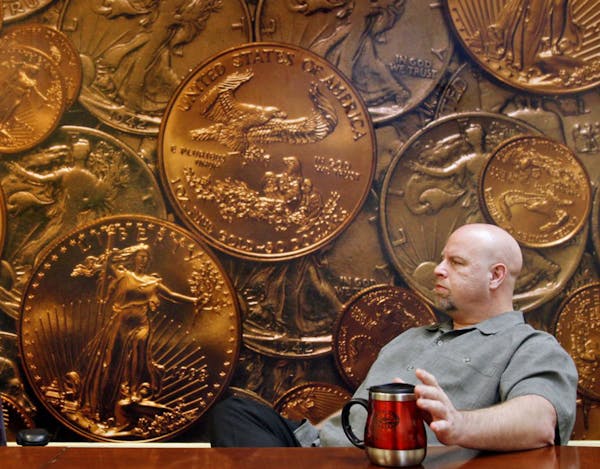David Marion was on top of the world in 2009, the sole owner of a Minneapolis coin firm that was raking in $24 million a year from mostly elderly telemarketing clients who were seeking a safe harbor for their money in the collapsing economy. On Thursday, with his ex-wife and a few friends looking on, he admitted to defrauding those clients and spending their money for his own uses.
Marion, 53, of Excelsior, ran International Rarities Corp. (IRC) from an office building just a block from the Minneapolis federal courthouse where he pleaded guilty to conspiracy and money laundering. His agreement with the government means he could spend up to 10 years in prison, though U.S. District Judge Patrick Schiltz warned that he could get as much as 30. Schiltz has said in other cases that he thinks the federal sentencing guidelines for white-collar criminals are too lenient.
Marion, who has wide connections in the precious metals industry, hopes to stanch a lengthy prison term by cooperating with the government. Those who provide "substantial assistance" can see their prison terms reduced by as much as 40 percent.
The Postal Inspection Service and the FBI have a number of other Twin Cities coin dealers under investigation, some of whom have worked for Marion in the past.
"The Postal Inspection Service is actively looking at these types of frauds … where the elderly are being victimized. That's a very important focus for us," said Jeffrey Long, public information officer in its Edina office. Long declined to discuss any particular case, including Marion's.
Assistant U.S. Attorney Karen Schommer told Schiltz that Marion has already begun cooperating and has complied with the rules at the halfway house where he's been held. The government recently removed his GPS monitoring device.
As part of his plea agreement, Marion agreed to pay restitution of about $2,560,000, and to forfeit property derived from his fraud scheme.
The Star Tribune featured Marion and his company in an investigative series on the Twin Cities coin industry published in 2011. It described how some firms hire salesmen without regard to criminal backgrounds, including fraud, forgery, theft and even bank robbery.
Suits filed, bill being considered
Minnesota Attorney General Lori Swanson has sued several coin firms and the Legislature is considering a bill to impose regulations on the industry.
The 6-foot-5, 265-pound Marion loomed large over his 142-pound attorney, Craig Cascarano, as he admitted Thursday that he and his sales staff sometimes entered into deals with customers to buy or trade precious metals. Instead they used the customers' cash and coins for themselves, or to fulfill other orders. As a result, Schommer said, IRC owed coin customers as much as $1.7 million at one point.
But Marion went a step beyond typical consumer frauds. He raised about $1 million from 26 investors, ostensibly for a nationwide expansion. He admitted to taking at least $200,000 of the booty for himself.
While desperate customers waited for their coins and cash, Marion hit the casinos in Minnesota and Las Vegas, according to regulators and investigators.
Marion lured potential investors by telling them he was registering his offering with the U.S. Securities and Exchange Commission. The SEC actually had denied his proposed security offering. The solicitation materials also stated incorrectly that IRC was owned by International Rarities Holdings, a Nevada company Marion had formed as part of the expansion effort. Marion actually maintained full ownership of the coin company. And Marion misled investors by stating that the holding company had a seven-member board of directors. Some of the purported board members said they hadn't been asked to join the board, or had declined to do so.
IRC filed for Chapter 11 bankruptcy protection in August 2011. The SEC filed suit against Marion last March, and IRC was forced to liquidate in September.
Dan Browning • 612-673-4493
Minnesota sales, clean-ups and other events to celebrate Earth Day and Arbor Day

Report: Former Minneapolis police oversight director disparaged women, threatened staff
Video goes viral of man enduring 'shocking' chain whipping on downtown St. Paul street

Marijuana's path to legality in Minnesota: A timeline

